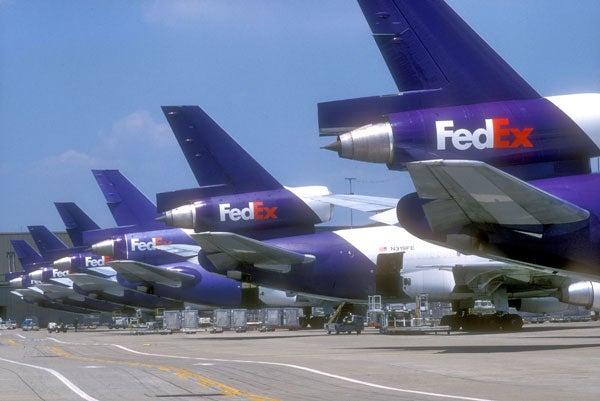Aerotropolis: The Way We'll Live Next, By John Kasarda and Greg Lindsay

The novelist JG Ballard described the airport as "the true city of the 21st century". Decades before him, the architect Le Corbusier declared: "A city made for speed is a city made for success." These two ideas achieve provocative fusion in a book about the potentially numbing subject of global commercial logistics that Ballard and Le Corbusier would have found riveting – but for very different reasons.
Aerotropolis explains, very readably and in labyrinthine detail, how it is possible for us to buy roses from Marks & Spencer, picked the day before in Holland; why a third of all the world's goods are shipped by air, creating only two percent of the world's carbon output; why UPS's WorldPort goods transit operation is contained in a massive box-building near Louisville airport that's bigger than downtown St Louis; why China is planning to construct dozens of "aerotropoli"; and how, as co-author, the American academic and global management guru John Kasarda, puts it: "Individual companies don't compete. Supply chains compete. Networks and systems compete."
Airports such as Amsterdam Schipol, Dallas-Fort Worth, and Washington Dulles were among the original aerotropoli – multi-functional urban organisms that sprawled outwards from airports to compress the time and space needed to make decisions and "transit" executives and products: the ultimate superconductors of goods, ideas and decisions. Oil prices? Not as significant as the cost of wasted time. Oil running out? No problem: the forthcoming, hyper-accurate NextGen jet navigation system will cut fuel use by more than a third. Anyway, algae-related and genetically engineered biofuels are on the way.
Aerotropoli have demonstrated extraordinary powers of urban regeneration. Memphis was revived by an aerotropolis containing more than 100 foreign companies after FedEx made the city's airport its international distribution hub. There are residential areas within minutes' drive of Dallas-Fort Worth and Dulles airports that have the highest suburban property values in America.
Greg Lindsay has thoroughly investigated the key aerotropoli and the corporate and city players involved with them. His writing is clear and assiduously detailed, and his chapters on China are particularly thought-provoking. This book will become required reading for economists, business studies students, architects, urban planners, sociologists – and more than a few novelists and essayists. Its polemic is slam-dunk simple: let there be aerotropoli, because without them life will become unsurvivably chaotic.
But there is an unsettling fundamentalism in these pages. It is not that one can wholly deplore the growing presence of aerotropoli on urban or architectural grounds: they are superbly efficient, commercially; and there is even a strangely compelling allure to the idea of logistical cities.
Even shadowed by ethical dubiety, many millions of people are able to earn money they wouldn't normally have by populating the production ghettos whose spoils pass through aerotropoli. It is also hard to gainsay the authors' mantra about the dynamics of airports and growing cities: the airport leaves the city, the city follows the airport, the airport becomes a city, breeding regiments of middle managers with expertise in "revenue evaporation" and "fulfilment operations".
But how will these devolved hub-urban sprawls affect our psyches and behaviour in the next 50 years? The book fails, quite profoundly, to address the existential challenges that these places without placeness will trigger. This psychopathology was inferred as far back as 1956 when the artist Constant Nieuwenhuys proposed a New Babylon where "people would be constantly travelling. There would be no need for them to return to their point of departure as this in any case would be transformed."
The architecture of the aerotropoli that will appear in South Korea and China's Pearl River Delta, the world's dominant manufacturing nexus, will produce glass-and-steel tundras blinged with golf courses and casinos. In New Songdo, the urban collage will take the signature styles of "universally beloved cities and recycle them as building blocks". In Shenzhen and Guangzhou (where FedEx's forthcoming aerotropolis is expected to generate new businesses worth $65bn by 2020), architectural train-smashes, rather than vacuous pastiche, have become à la mode.
"The great airports are already the suburbs of an invisible world capital," wrote Ballard, "a virtual metropolis whose fauborgs are named Heathrow, Kennedy, Charles de Gaulle, Nagoya, a centripetal city whose population forever circles its notional centre, and will never need to gain access to its dark heart." But that darkness is visible in Aerotropolis, and we glimpse it most decisively on page 358, in a single sentence of chilling utopianism that Ballard might have written as a vicious satire: "The implicit promise of a sustainable world is one in which six and a half billion people – or in forty years, nine billion – live like Americans, only with no penalty to the planet."
In another kind of darkness over Memphis and St Louis, Subic Bay in the Philippines, and Las Colinas in Texas, Jumbos and 777s stack perpetually in the frictionless night air. Their precise patterns of movement, their slightly vibrating payloads of Happy Toys, chemotherapy drugs and iPads, are no longer part of a convenient satire, but props in the unfolding of a corporately-sponsored drama in which our lives are reduced to the pursuit of two interlocking virtues: hyper-efficiency, and terminal over-consumption.
Subscribe to Independent Premium to bookmark this article
Want to bookmark your favourite articles and stories to read or reference later? Start your Independent Premium subscription today.

Join our commenting forum
Join thought-provoking conversations, follow other Independent readers and see their replies